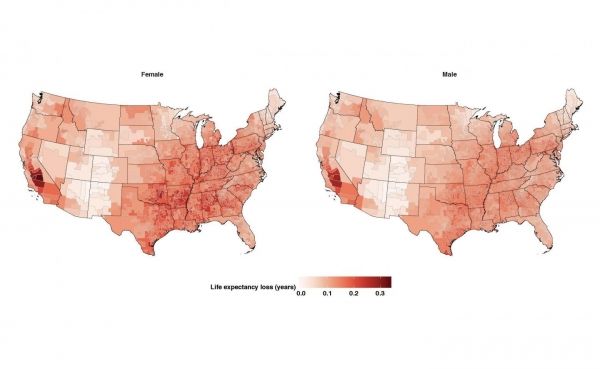Research findings from the Center for Air Quality, Climate, and Energy Solutions (CACES) at Carnegie Mellon University show significant human health benefits when air quality is better than the current national ambient air quality standard. The estimate of lives that could be saved by further reduction of air pollution levels is more than 30,000, which is similar to the number of deaths from car accidents each year.
CACES’ results were published this week in two related studies in the journals Environmental Health Perspectives and PLOS Medicine. The studies examined U.S. mortality related to fine particulate matter pollution (PM2.5), the complex mixture of chemicals that can penetrate deeply into the lungs, contributing to respiratory and cardiovascular disease and premature death. The current U.S. standard for PM2.5 is an annual average of 12 micrograms per cubic meter of air. The new findings indicate that there are significant public health benefits to improving air quality, even in locations where PM2.5 levels are below 12 micrograms per cubic meter.
“These findings are particularly relevant at a time when the EPA is planning to change how it calculates the benefits of cleaner air by dismissing any health benefits below the current standard,” said Allen Robinson, director of CACES and professor of mechanical engineering at Carnegie Mellon. “These benefits are important to consider when evaluating efforts to tackle climate change, such as the Clean Power Plan.”
Read more at Carnegie Mellon University
Image: These are maps of estimated premature mortality due to fine particulate matter. (Credit: PLOS Magazine)


